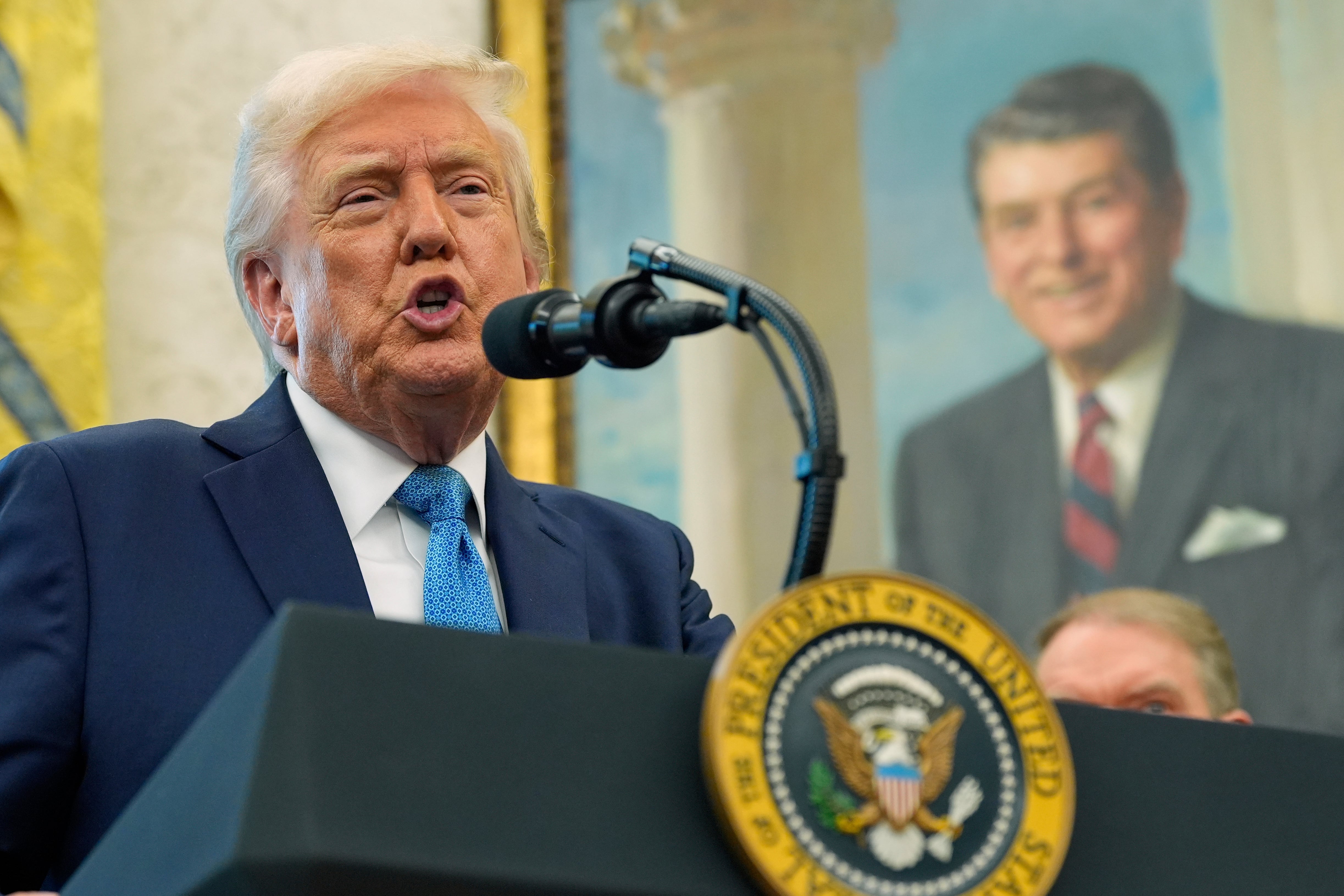WASHINGTON (AP) — President Donald Trump said Tuesday he has no plans to fire Federal Reserve Chair Jerome Powell, just days after his statement that he would like to terminate the head of the U.S. central bank caused a stock market selloff.
“I have no intention of firing him,” Trump told reporters.
The U.S. president had previously insinuated otherwise as he said he could fire Powell if he wanted to, having been frustrated by the Fed putting a pause on cuts to short-term interest rates. Powell has said that Trump’s tariffs are creating uncertainty about slower growth and higher inflationary pressures, while the president maintains that inflationary worries are essentially non-existent.
The president maintains that energy and grocery prices are falling, so the Fed should cut its benchmark rates because inflation is no longer a threat to the U.S. economy, Trump said. His remarks indicated that he still plans to use the bully pulpit to pressure a U.S. central bank that is committed to resisting political pressure as part of its mandate to stabilize prices and maximize employment.
Trump's frustration led him to post on social media last Thursday: “Powell’s termination cannot come fast enough!”
The Fed chair’s term ends in May 2026.
On Tuesday, Trump continued to air his grievances about Powell, even though he said the Fed chair would stay on the job despite the president's belief that inflation is no longer a problem.
“It’s all coming down,” Trump said. “The only thing that hasn’t come down, but hasn’t gone up much, are interest rates. And we think the Fed should lower the rate. We think that it’s a perfect time to lower the rate. And we’d like to see our chairman be early or on time, as opposed to late. Late’s not good.”
Trump again attacked Powell on Monday on his Truth Social account, saying that “there is virtually No Inflation.”
The comment built on a statement by Trump last week that said he believed he could fire Powell, a move that shook financial markets and frightened investors that interest rates might be subject to politics instead of economic fundamentals.
“If I want him out, he’ll be out of there real fast, believe me,” Trump said in the Oval Office last Thursday. “I’m not happy with him.”
The Fed has held off on further reductions to its federal funds rate, which influences the money supply by setting the interest rate that banks can charge each other for overnight loans. That rate is effectively 4.33%, down a fully percentage point since last August as inflationary pressures appeared to ease.
The Fed had initially raised that rate because of inflation spiking during Joe Biden’s presidency, a byproduct of the global economy recovering from the COVID-19 pandemic and higher energy and food prices after Russia invaded Ukraine in 2022.
But Powell has also been willing to challenge the president's trade policies. He said last week in a Chicago speech that Trump’s tariff policies would hurt the U.S. economy, a direct warning to a White House trying to sell the import taxes as a long-term positive for the country.
“The level of tariff increases announced so far is significantly larger than anticipated, and the same is likely to be true of the economic effects which will include higher inflation and slower growth,” Powell said last week at the Economic Club of Chicago.









